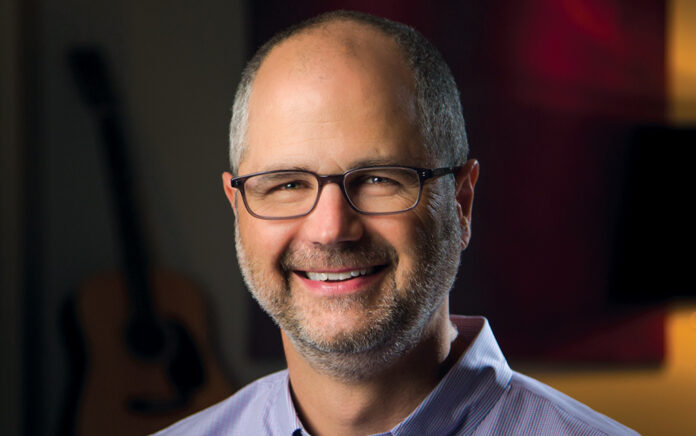As Told to Jessica Hanewinckel
The past two and a half years have, in many ways, been an unprecedented, difficult season, especially for pastors. While the pandemic, racial tension, political strife, polarization and division aren’t new phenomena at all, I think they’ve served to reveal what’s been in the human heart since the fall. It’s been overwhelming for pastors because a lot of us find ourselves caught in the middle of ideological tug-of-wars between our church members. We believe in the ministry of reconciliation. We believe, as Ephesians 2 talks about, that dividing walls of hostility have been brought down through the cross between all kinds of people groups. We believe in our hearts that under Christ, enemies can become family. That’s a huge part of why we’re in ministry.
For so many years, we’ve been talking about the virtues and goodness of nurturing churches that are diverse. What the pandemic has done in many cases is create division instead of pulling diverse people groups together in the church. Sadly, some of the most diverse churches in America are also now some of the most divided churches because of all the political polarization. Now, if I’m a pastor in a local community that has a diverse range of political and ideological viewpoints, and yet there’s been virtually no tension in the church I pastor, I think it’s a good occasion to ask if we really are nurturing diversity. Or are we more tribal than we realized due to the absence of tension in our churches in a climate like this?
At the same time, a lot of healthier churches have experienced a relative peace during this season. I believe that is because long before the pandemic ever happened, those churches have done the good and hard work of nurturing neighbor love across the lines of difference, both inside and outside of the church. It has become part of the church’s DNA. In those cases, the pandemic has served as an occasion to reveal that social sanctification of the church in a climate that’s hostile and divided. Relative peace can exist for really good and virtuous reasons, or it can exist because we actually haven’t ever really tried to nurture diversity.
If you haven’t experienced suffering, give thanks to the Lord for the gift of peace. Having not experienced hurt or loss or pain or suffering is not a cause for guilt and shame at all. It’s a cause for thanksgiving. While on the one hand we should never seek to suffer, Christians are also called to constantly be moving into the spaces that elevate the potential for suffering, because we’re called to serve, bless and be in relationship with a hurting world. The closer we get to the hurt, the more occasion it creates for us to share in that hurt and to share in those burdens.
In terms of sanctification, part of our becoming like Christ involves suffering. It’s been graced to us, not only to believe in Christ but also to suffer for his sake (Philippians 1:29). Even Jesus learned obedience through the things he suffered. Paul talks about his thorn in the flesh and how that became the occasion for his trust to be deepened in the work of Christ. He talks about how we rejoice in suffering because suffering produces perseverance, character and hope. You know, at some point we’re all going to either be buried or bury somebody else. It’s important to prepare ourselves for suffering for the time that it does come, because it will come for all of us.
The stuff that draws me personally to the Bible is how open it is about the sin and suffering of those who God works through most remarkably. That was actually one of the things, as a sinner and sufferer aware of his own sin and suffering, that drew me to Christ. The Scriptures don’t paint a picture of a happy, comfy, cozy existence. Being a Christian means we’ve got to open our eyes to the sin and sorrow of the world, including the sin and sorrow of our own lives.
I’ve never regretted being transparent about my shortcomings and sorrows. They are a means to create a bridge to the gospel and a bridge to Christ for my fellow sinners and sufferers in my congregation. Those occasions have always been met with gratitude and appreciation. They have brought hope to people who then realized, Wait a minute, I’m not all alone in the world with my guilt, shame and sorrow. I’m not all alone in the world as a struggler and a sufferer. As somebody who has experienced anxiety or depression, even one of my leaders has these kinds of afflictions, so I guess there’s hope for me as well.
Every time a pastor, apostle or prophet shares about sin and struggle, it’s always an occasion to point people to the magnitude of God’s grace. Of course, we’ve got to be careful as pastors to not overshare. We don’t want our self-disclosure to become more a dramatization of our own story rather than point people to Christ and his healing grace. We don’t want to turn our church into group therapy sessions for the pastor. That’s why we have counselors and older mentors. So there’s a balance.
Scott Sauls serves as senior pastor of Christ Presbyterian Church in Nashville. His latest book is Beautiful People Don’t Just Happen: How God Redeems Regret, Hurt and Fear in the Making of Better Humans (Zondervan).

